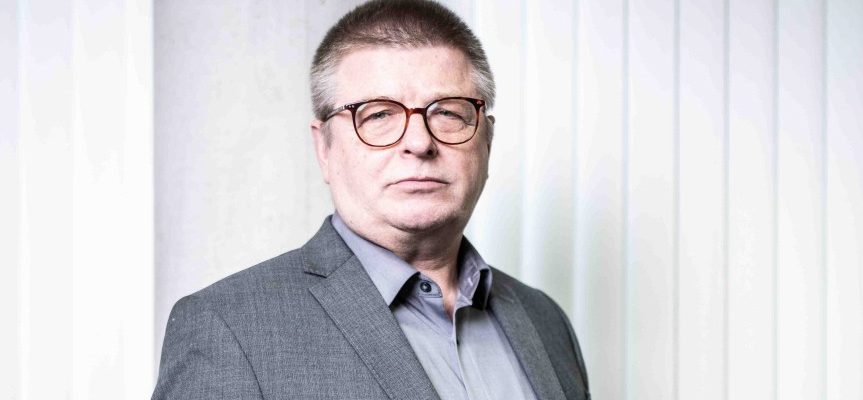After the AfD’s European election meeting, the President of the Federal Office for the Protection of the Constitution, Thomas Haldenwang, confirmed his assessment of the party. “In a number of statements, an ethnic understanding of the people is expressed, for example by invoking the ‘great exchange’,” he told the ARD capital studio. “Such statements offer indications that the human dignity guarantee of the Basic Law for certain population groups is being questioned.”
Haldenwang said something similar after the first part of the party event about a week ago. AfD boss Tino Chrupalla then replied: “We clearly represent the Basic Law here and Mr. Haldenwang is outside of this law.”
Haldenwang initially had to give a “standstill promise”.
Haldenwang spoke of the fact that “various election candidates had expressed right-wing extremist conspiracy theories”. On the other hand, the party defended itself in court with an urgent application and demanded an injunction. The Federal Office for the Protection of the Constitution then committed itself in a “standstill agreement” to refraining from critical statements during the AfD European election meeting last weekend. Regarding the reasons, Haldenwang told the ARD: “The submission of a standstill commitment is a common procedure in such urgent proceedings in order to give the court sufficient time for a proper examination and decision.”
Haldenwang also spoke of fulfilling his legal mandate by informing the public. “As a means of a well-fortified democracy, this serves the purpose of informing the public about efforts and behavior that are directed against the free democratic basic order. In this way, such efforts can be countered in good time through social and political debate.” A party conference of the AfD had determined the candidates for the European elections in 2024 and decided on the election program over the past two weekends in Magdeburg.
The Berlin SPD leader Saleh advocates trying to attract AfD voters
SPD politicians in particular are now thinking about how the current AfD soaring in the polls could possibly be stopped. The approach is different. Berlin’s SPD state and parliamentary group leader Raed Saleh advocates trying to attract AfD voters and not excluding them. “The people who are now voting for the AfD have previously voted for a large part of democratic parties. It’s no use pointing the finger at them, we have to bring them back,” said the politician of the German Press Agency. “I speak here for all democratic parties.”
This is possible through good work and policies that strengthen people’s trust in democratic processes. “We’re making it difficult for the right-wing extremists to reach people with their clumsy slogans.” “Democratic parties have the task of signaling to the entire population: We’re doing everything possible to prevent social upheaval, that nobody has to be afraid of social decline through no fault of their own,” said Saleh. “And on the other hand you have to show that you don’t ignore problems and that you are able to protect people.”
Lower Saxony’s Prime Minister Stephan Weil sees the other parties as having a duty in view of the AfD’s high polls. “Basically, if the AfD is to become weaker again, the other parties have to get better,” said the SPD politician Hannoversche Allgemeine Zeitung.
Martin Schulz advises taking the fear of social decline more seriously
From the point of view of former EU Parliament President Martin Schulz (SPD), democratic parties worldwide should take people’s fears of social decline more seriously. “The moment politicians alleviate this fear through concrete action, we can protect people from blindly following populists,” Schulz told the digital media company Table.Media in an interview.
Schulz does not expect the AfD to win the upcoming state elections in Germany. The AfD is “real at ten to twelve percent,” and they will keep these voters. “But their soaring will not last,” said the chairman of the Friedrich Ebert Foundation. At the end of a legislative period, voters take stock and ask themselves who should lead the country in the coming years. “And balance sheet and prospects are related. You don’t get any praise for a good balance sheet, but you may get a leap of faith for the near future. That’s why the government is well advised to keep your nerve,” said Schulz.
The current high of the AfD will be over when the traffic light coalition in the federal government comes to a more coherent government action. “However, teaching the Greens and the FDP that seems relatively difficult to me,” admitted Schulz.

